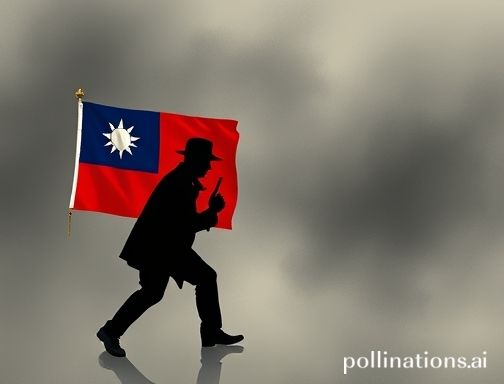Taiwan's Urgent Need: De-Politicizing the Chinese Espionage Threat
Experts Urge Taiwan to Adopt Objective Standards to Combat Rising Espionage Risks.

Washington, April 24 – In light of the growing threat of Chinese espionage, Taiwan must adopt a strategy of "de-politicizing" the issue, recognizing that individuals from all backgrounds are vulnerable to recruitment, according to a U.S. analyst speaking on Thursday.
"We need to recognize that anyone can be a victim. Anyone can make that choice. It doesn't matter where they come from," stated Peter Mattis, former counterintelligence analyst at the Central Intelligence Agency, during a seminar hosted by the Global Taiwan Institute in Washington, D.C.
Mattis highlighted that instances of espionage have involved individuals associated with both the Kuomintang and national security organizations, as well as those affiliated with the Democratic Progressive Party, who have chosen to engage in spying activities "for some reason or another."
He referenced a recent case involving alleged espionage by a former assistant who worked for National Security Council Secretary-General Joseph Wu (吳釗燮) during his tenure as Taiwan's Foreign Minister from 2018 to 2024.
"This is why, to me, it is a tragedy that you have an aide to Wu Chao-hsieh [Joseph Wu], or that you have someone who worked in the Legislative Yuan for so long, who was spying for the CCP [Chinese Communist Party]," he emphasized.
Drawing upon Deng Xiaoping's (鄧小平) famous quote, Mattis remarked that "Whether it is 'a blue spy, green spy, white spy, it doesn't matter what kind of spy, as long as it hurts Taiwan, it's a good spy.'"
He urged Taiwan to approach the situation with caution, emphasizing the importance of establishing objective behavioral standards and security protocols. These measures would "allow people to have a clear set of expectations, what's acceptable, what's not, and also the rules to remove people from sensitive positions."
Beyond espionage, Mattis expressed concern over the Chinese military's recent training exercises in Inner Mongolia, which simulated the environment surrounding Taiwan's Presidential Office in Taipei.
According to Mattis, the CCP has demonstrated a persistent focus on Taiwan's military police command and, consequently, presidential security.
"This, to me, is quite concerning, because there is an importance of a national leader, and this is a very clear and deliberate effort to make sure that they have real-time awareness of the president's security detail," he stated.
The two-hour seminar, titled "Enhancing US-Taiwan Cooperation in Countering the CCP's Ideological Work and Political Warfare," also featured presentations by key speakers, including Mike Studeman, former Commander of the Office of Naval Intelligence and a retired rear admiral, and Derek Grossman, a senior defense analyst at RAND.
Other Versions
Taiwan's Urgent Need: Despolitizar la amenaza del espionaje chino
L'urgence pour Taïwan : Dépolitiser la menace de l'espionnage chinois
Kebutuhan Mendesak Taiwan: De-Politisasi Ancaman Spionase Tiongkok
L'urgente necessità di Taiwan: De-politicizzare la minaccia dello spionaggio cinese
台湾の急務:中国スパイの脅威を脱政治化する
대만의 긴급한 필요: 중국 스파이 위협의 탈정치화
Agad na Pangangailangan ng Taiwan: Pag-aalis ng Pulitika sa Banta ng Espiyonase ng Tsina
Тайвань'насущная необходимость: Деполитизация угрозы китайского шпионажа
ความต้องการเร่งด่วนของไต้หวัน: การลดความเป็นเรื่องการเมืองของภัยคุกคามการจารกรรมของจีน
Nhu Cầu Khẩn Thiết của Đài Loan: Phi Chính Trị Hóa Mối Đe Dọa Gián Điệp Trung Quốc

